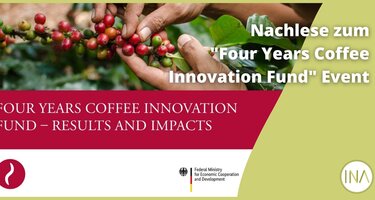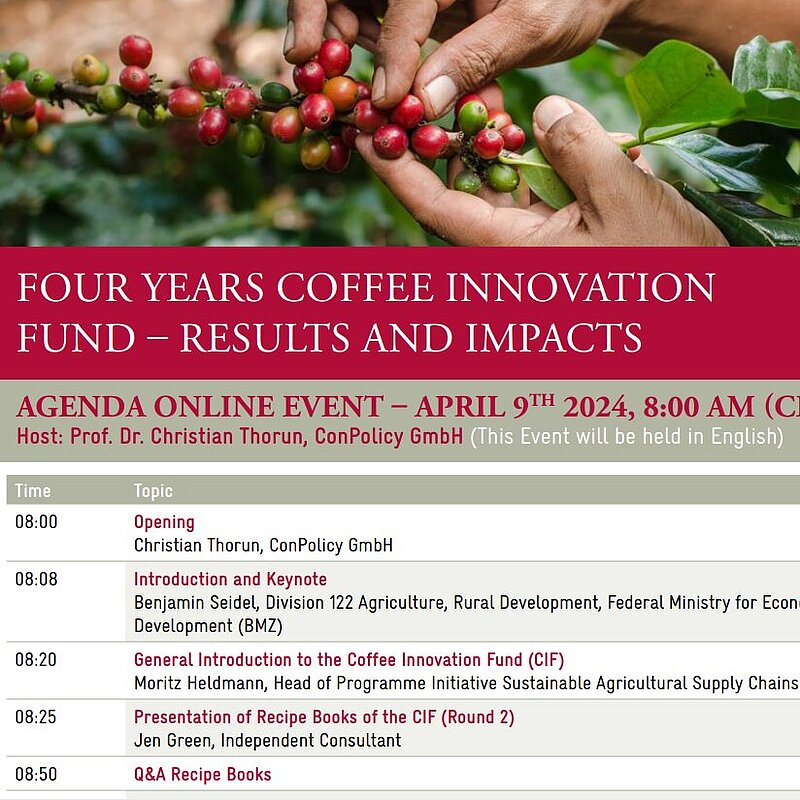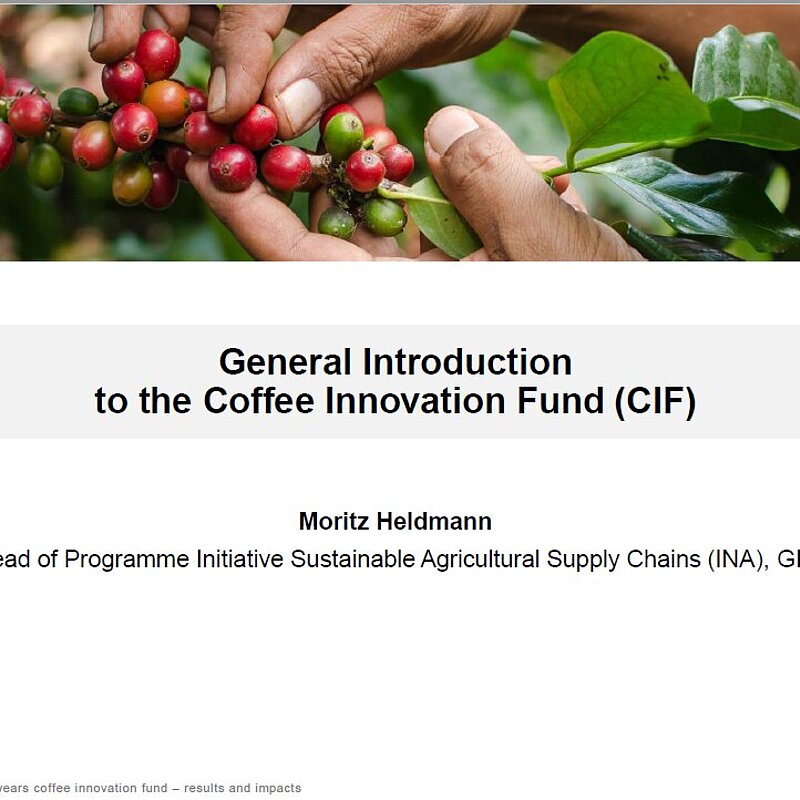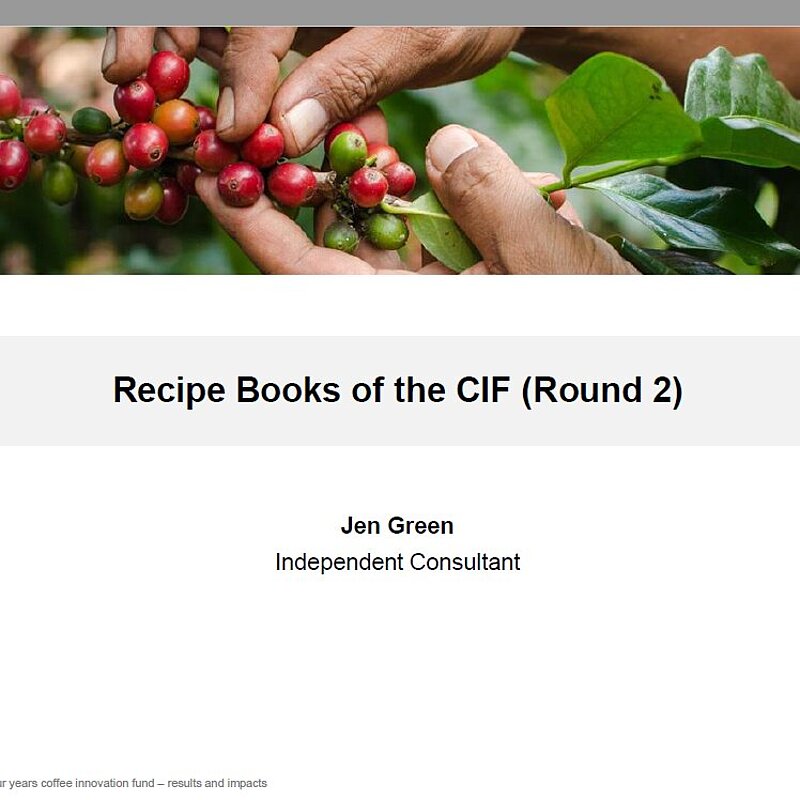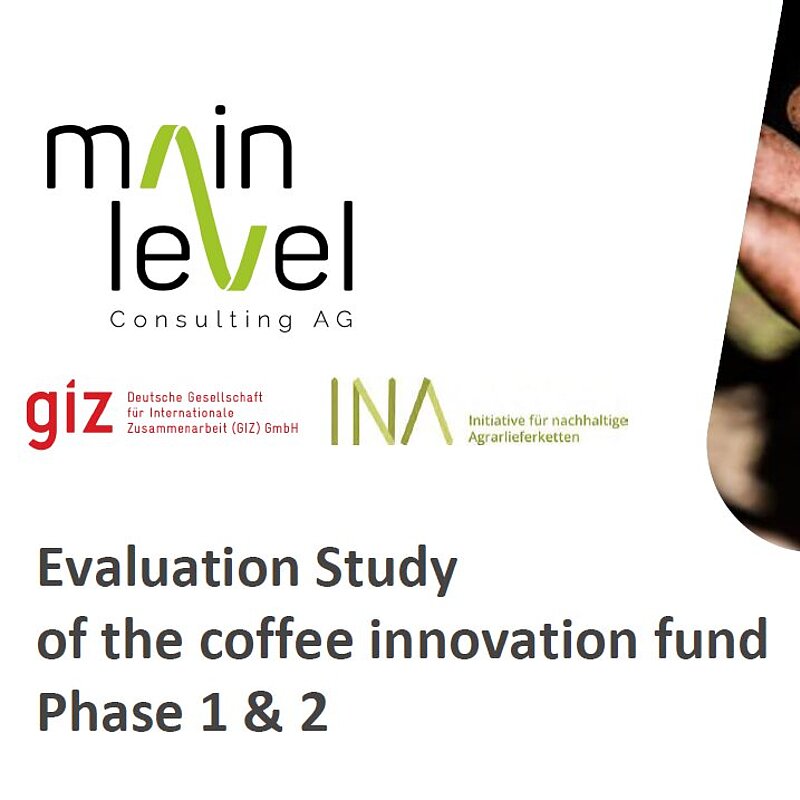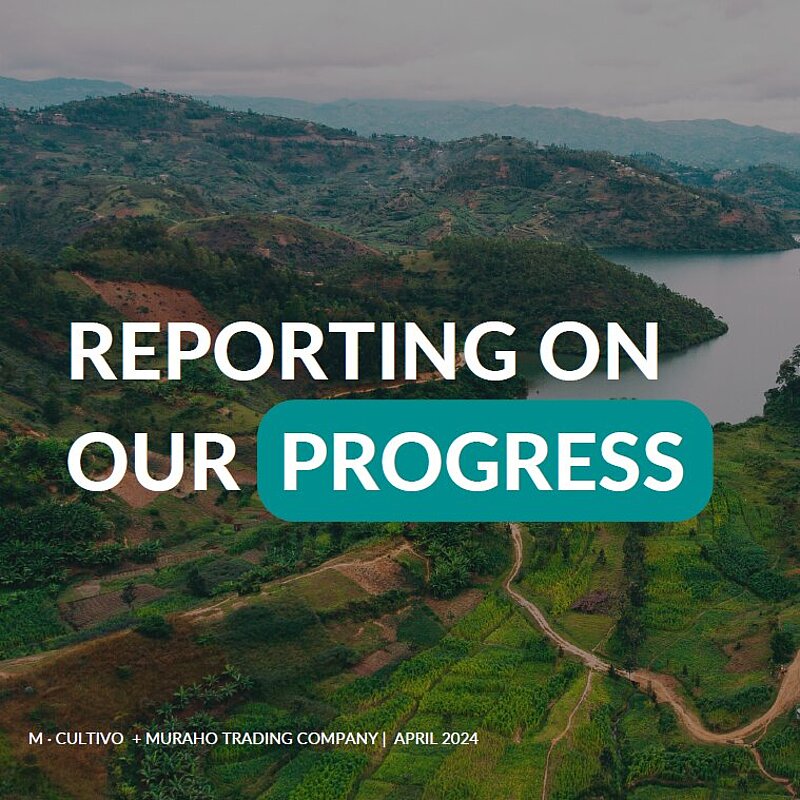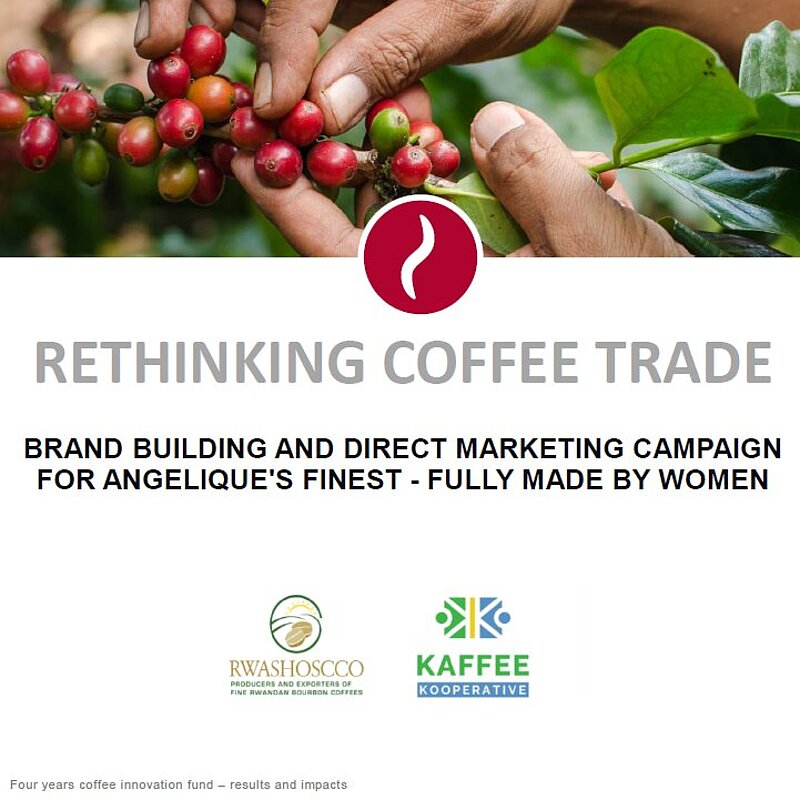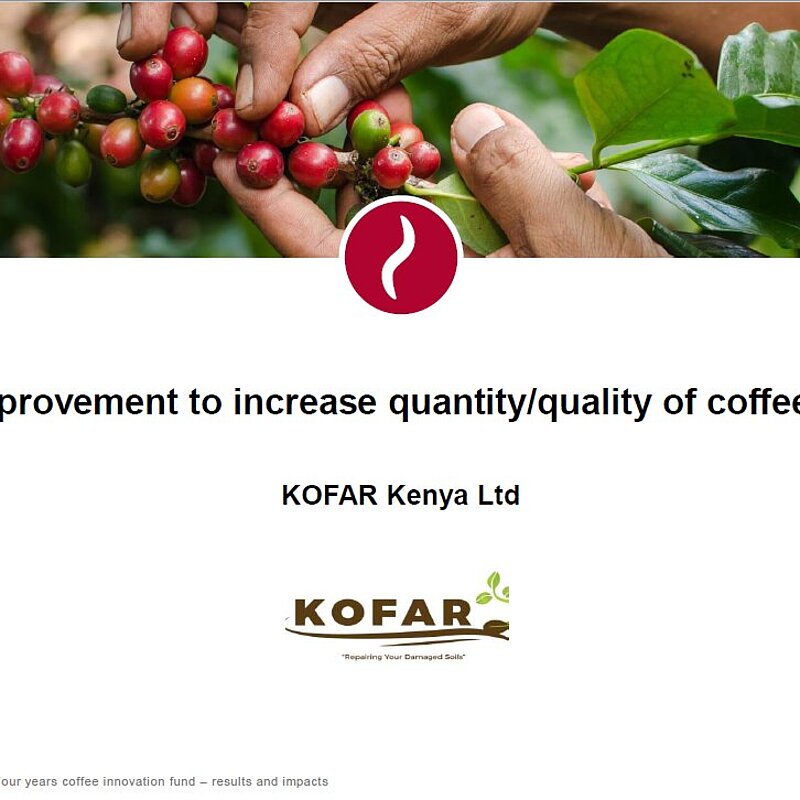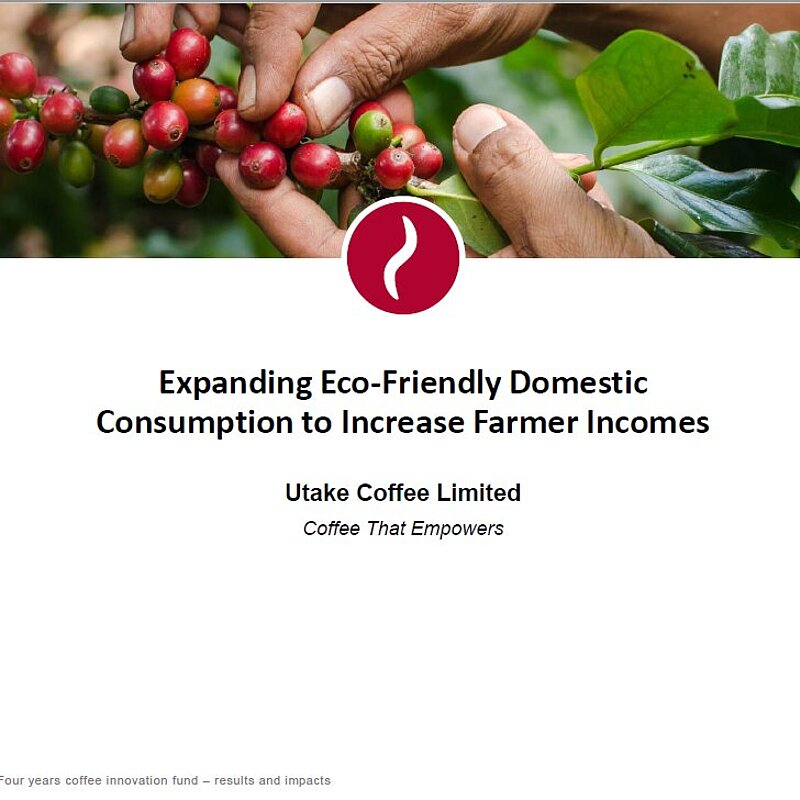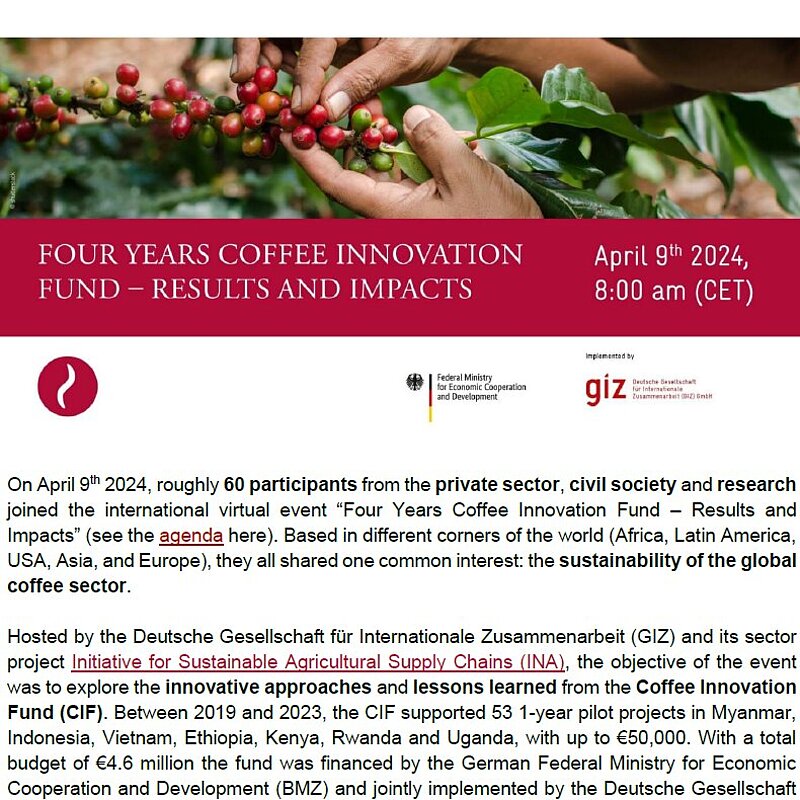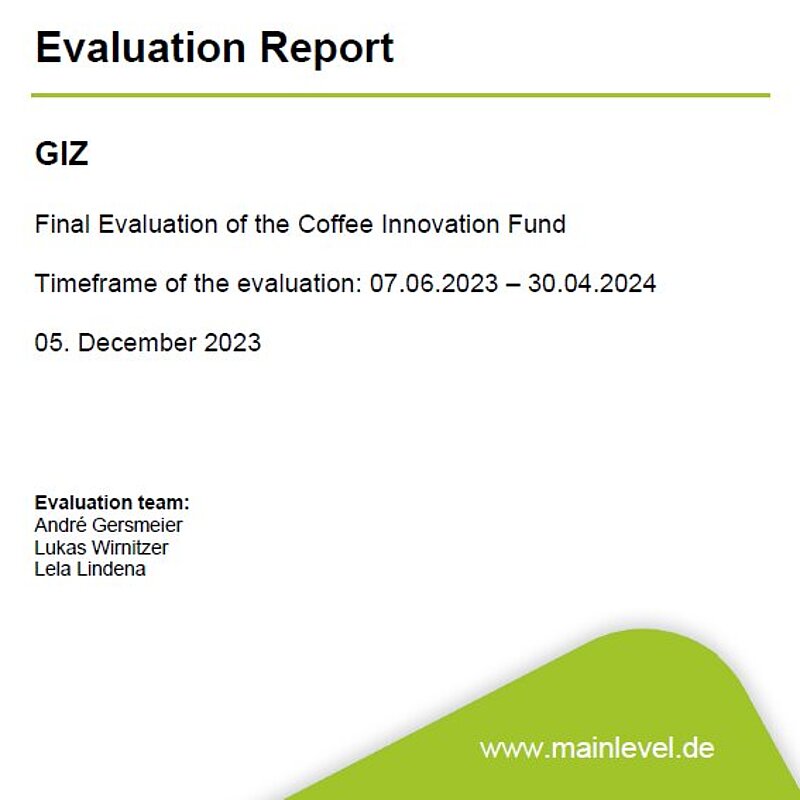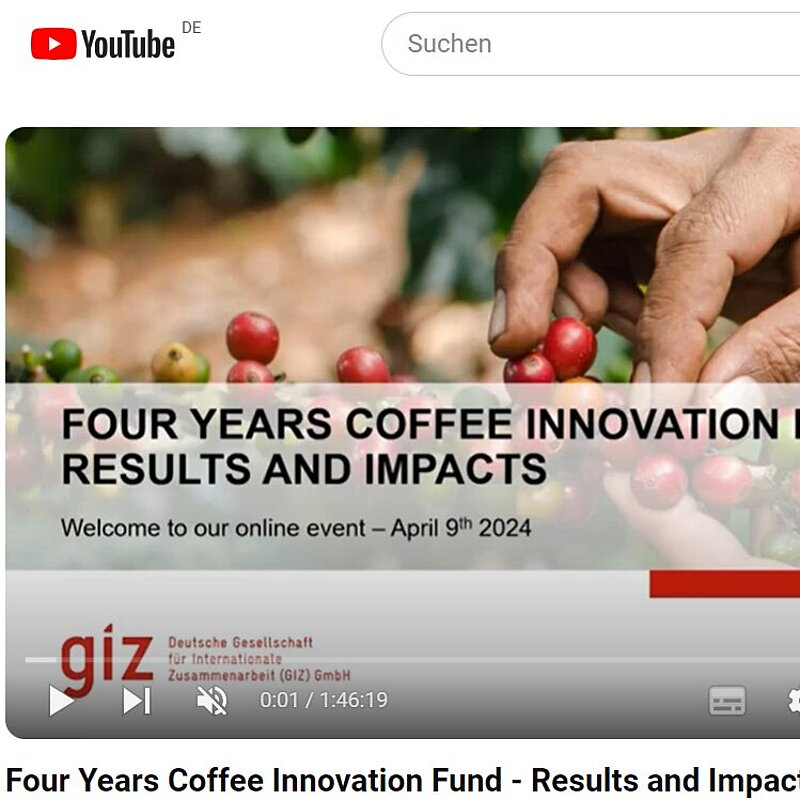Review of the "Four Years Coffee Innovation Fund" event
On April 9, 2024, around 60 representatives from the private sector, civil society, politics and research came together online to look back on four years of implementation of the Coffee Innovation Fund (CIF) and to share successes and lessons learned. They came from different parts of the world (Africa, Latin America, USA, Asia and Europe) and all had a common interest: the sustainability of the global coffee sector.
Benjamin Seidel from the German Federal Ministry for Economic Cooperation and Development (BMZ) opened the event and highlighted the various social, economic and environmental challenges in the coffee sector. The CIF was launched in 2019 in response to these challenges and, with a total budget of 4.6 million Euros, has been able to contribute to increasing the profitability of smallholder farmers in the coffee sector in selected countries. Mr. Seidel welcomed the approximately 60 participants to the event and invited them to an open exchange. The opening of the event was followed by a presentation of the CIF and thematic classification into the Initiative for Sustainable Agricultural Supply Chains (INA) by Moritz Heldmann (Program Manager of INA).
Recipe Books – Guidance for successful project implementation
Jen Green (external consultant) then presented the recipe books she has developed - no recipes for cooking, but step-by-step instructions for the CIF projects that have been implemented, with the necessary ingredients and recommendations for action. The keywords "replicability" and "scalability" were brought up, referring to copying, expanding and further developing successfully implemented pilot projects by other players in the international coffee sector. One particularly interesting innovation Jen came across was the processing of dried coffee husks, known as cascara, into decaffeinated beverages to reduce waste and add value. Finally, Jen called for people to share ideas and learn from each other. The finalized recipe books will be available on the INA website in the coming weeks and distributed through various communication channels.
Evaluation Study
Have the objectives of the CIF been achieved? What effects were reached at target group level? And has the CIF format proved to be successful? Answers to these questions were presented by André Gersmeier. As a representative of the external company Mainlevel Consulting AG, he has spent the last few months working intensively on the results and lessons learned from the CIF as part of an evaluation study. In addition to some administrative challenges in the implementation of the CIF, André particularly emphasized the positive contribution that the CIF was able to make to testing innovative ideas. The needs-oriented approach of the CIF enabled a wide range of topics and direct involvement of the target group in the implementing countries. The partners also showed a high level of motivation and ambition and implemented projects with a high degree of personal responsibility. Initial results at impact level have been achieved, even though it is still too early to make a statement about long-term effects. The detailed study results can be found here.
CIF projects in the spotlight
In the second part of the event, participants were able to gain an insight into the specific CIF projects. Gender equality, digitalization, climate change mitigation & adaptation and value addition strategies - the CIF projects cover a wide range of topics. Selected CIF projects from each thematic focus area presented their successful solutions in two rounds. For example, participants learnt from Franscescah Munyi how her company Kofar Kenya Ltd. supports coffee farmers in adapting coffee cultivation to the challenges of climate change, such as rising temperatures and soil degradation. To increase the income of female coffee farmers, Mbula Musau and her company Utake Ltd. have developed coffee drip bags. By processing high-quality speciality coffee, this innovation helps to promote and increase the value creation and consumption of coffee in their own country.
